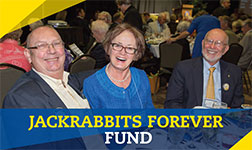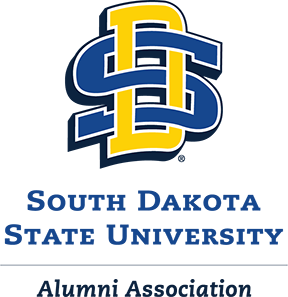Hometown help
The arrival of a 3D printer could not have come at a better time for Luke Thompson. A South Dakota State University sophomore majoring in mechanical engineering, Thompson had ordered a 3D printer and was looking for a project to see what the printer could do.
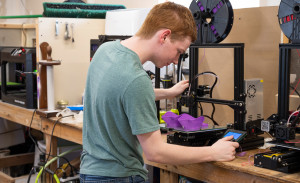
Luke Thompson uses a 3D printer to create PPE masks for local law enforcement. Courtesy of Rocky
Thompson Photography
While visiting his girlfriend in late March, her mother showed Thompson a social media post in which a Billings, Montana, group had scanned a face and used it to develop a 3D model to create reusable protective masks. The Montana group classified the code as open source, which allowed Thompson to start making protective masks for emergency personnel in his hometown of Milford, Iowa.
“My goal is to help as many people as I can. I knew the Milford EMTs and police department didn’t have much for PPE (personal protective equipment) as all PPE was being sent to hospitals, so I wanted to make sure they had masks when the COVID-19 pandemic hits here,†he said. “There are a few other local firms helping so they’re covered now.
“Because not everyone has the same size face, I scaled the original model down 5% to fit others and kept doing that to create four other sizes,†said Thompson, who is also pursuing minors in computer science and mathematics. “I’ve had a lot of people reach out and ask how to get masks.â€
For example, Thompson provided 18 masks for MercyOne Siouxland Medical Center in Sioux City, Iowa, along with 27 masks for Milford’s EMTs and the police department.
In addition to his own printer, Thompson uses one from Milford’s 996 Industries, where he worked as an intern in summer 2019. He also used three 3D printers borrowed from Okoboji High School, giving him five printers to work with. He said it takes approximately four hours to print a mask, allowing him to create 25 each day.
Sewing engineers
Jason Prout, an instructor at South Dakota State University’s Jerome J. Lohr College of Engineering, has students put in six hours of service learning for the community of Brookings or in their respective hometown.
When COVID-19 hit, along with shutdowns and social distancing, Prout gave his students some options for fulfilling the six hours. Jaime Peralez-Segura, who is pursuing a bachelor’s degree in operations management, talked fellow students into a sewing project because he saw a need in the community and realized, with a little bit of help, they could make a difference and complete the assignment.
Peralez-Segura saw an ad from JoAnn Fabrics and checked with Prout to see if a sewing project would fulfill the community service requirement. Prout approved, and Peralez-Segura emailed his fellow students to see how many were willing to take part. Rizwan Kalana, Gashaw Melese, Moe Younis and Adam Coners joined him, making 70 masks, which were sent to a Walmart pharmacy in Minnesota and to the Flandreau nursing home.
Going viral
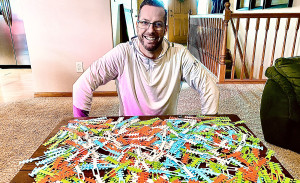
Mitchell Olsen displays the strips he created to alleviate pressure behind the ears when wearing a mask. Courtesy of
Mitchell Olson
A social media post by Mitchell Olson ’99 about what he was doing to help others in the COVID-19 pandemic went viral.
Olson’s husband, Mark Schmidt, received a 3D printer as a Christmas gift but had not tested its capabilities. Olson saw a design by SDSU theater graduates Tyler Denuie ’06, Jesse Schanzenbach and Adam Skoglund ’11 and thought this idea could be his way to help during the pandemic.
Olson, who earned his bachelor’s degree in music performance, made a post April 5 on Facebook that he was 3D printing five strips for a neighbor who works at a Sioux Falls hospital. The strips hold a mask’s elastic straps and make them more comfortable to wear by pulling those straps away from one’s ears.
It didn’t take long before he had requests for 1,200 strips. By the end of April, he had printed and distributed 18,000 strips.
Olson’s printing ability caught the attention of the University of Nebraska Medical Center. He was asked to print test swabs for the organization.
Masks instead of costumes
Instead of sewing costumes for South Dakota State University theatrical productions or making quilts or other projects, more than 20 individuals are making masks for Brookings Health System and Avera Medical Group Brookings.
Billy Wilburn, an associate professor at SDSU, has helped coordinate community members, SDSU faculty, staff and students who have made more than 1,200 masks. Materials for the masks have come from personal fabric collections, scrap fabric from the SDSU Costume Shop and some special surgical fabric from Brookings Health System.
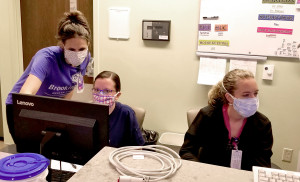
Members of the Brookings Health System wear masks sewn by community members. Courtesy of Brookings Health System
“Billy Wilburn has gone above and beyond to help share our sewing pattern and resources on the SDSU campus and within the community. It has been truly heartwarming to see the community come together and be so supportive of our local health care teams,†said Sara Schneider ’10, director of Brookings Health System Foundation.
Wilburn coordinated with JoAnn Fabrics in town and has been picking up the donations there.
“All of the responses I have had are positive,†Wilburn said. “Everyone is so willing to help in this time of need.â€
One of those individuals is Melissa Hauschild-Mork ’87, the School of Performing Arts’ dance coordinator. She said it takes her 10 to 15 minutes to sew a mask if all of the supplies are prepped and cut.
“I will continue sewing until the need subsides. I have crates of fabric in my basement along with bins of thread,†she said. “There are so many individuals in health care working diligently to care for others, making masks is one way I feel I can help. I have never experienced anything like this pandemic in my life. Many of us are feeling stressed and helpless. We clearly all have to work together to get through this—my contribution in the big picture is to share my gifts to help others practice theirs.â€
Rebecca Krause, a senior majoring in theater from Brookings, started sewing masks as a way to keep busy while self-isolating. After finding a tutorial from JoAnn Fabrics, she started an assembly-line like process and can create a mask in seven or eight minutes. Krause also acts in State University Theatre productions and designs sets.
“I make the masks, not because I am worried about getting sick, but I have friends and loved ones who are susceptible to the virus, and I want to protect them,†said Krause, who also has been sewing small handmade items for her theater friends around the Midwest. “I also am aware of the pressure the health system is under, so I want to do something small to support them since funds aren’t always readily available.â€
It takes Sue Fierstine about 20 minutes to sew a fitted mask. The budget and administrative coordinator for SDSU’s College of Pharmacy and Allied Health Professions, Fierstine spent 19 years working in health care. She sees the sewing as a way to give back to former co-workers and others who are on the front lines of fighting COVID-19.
“I have been sewing since I was in middle school and have been quilting for the past 13 years so it was a natural way I could contribute,†said Fierstine, who also has three sisters sewing masks. “I’ll continue as long as they need them.â€
– Matt Schmidt



